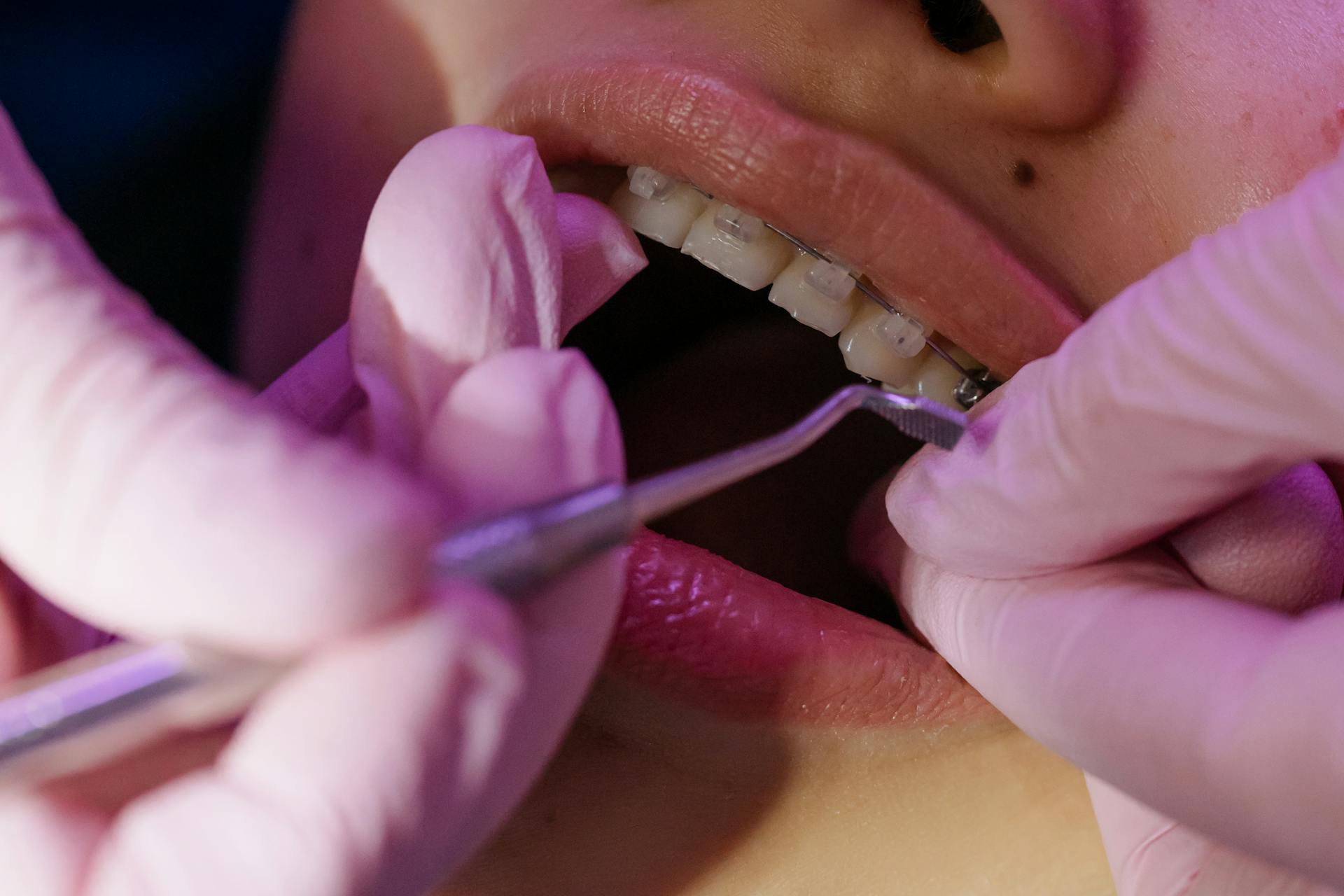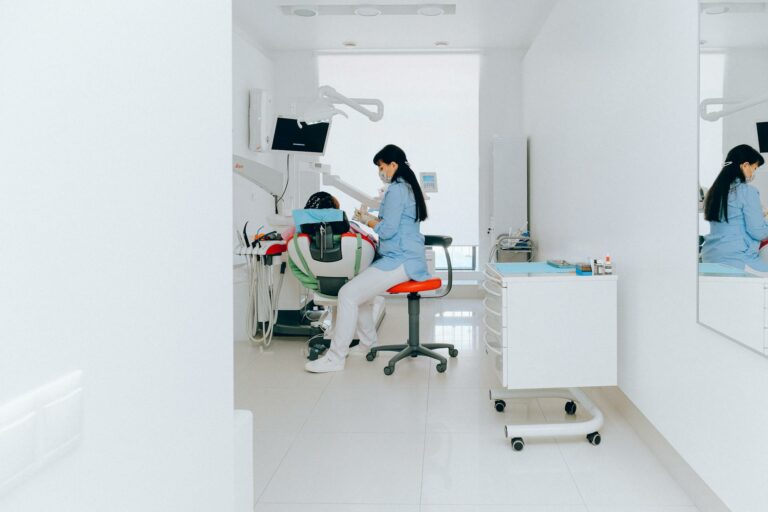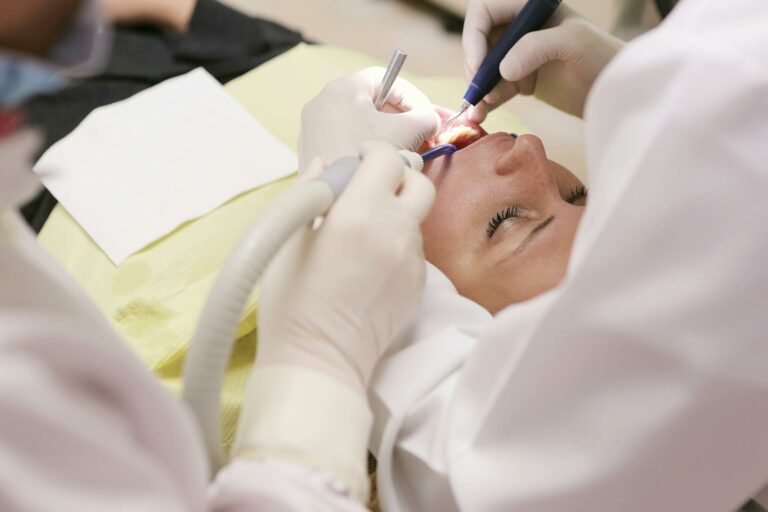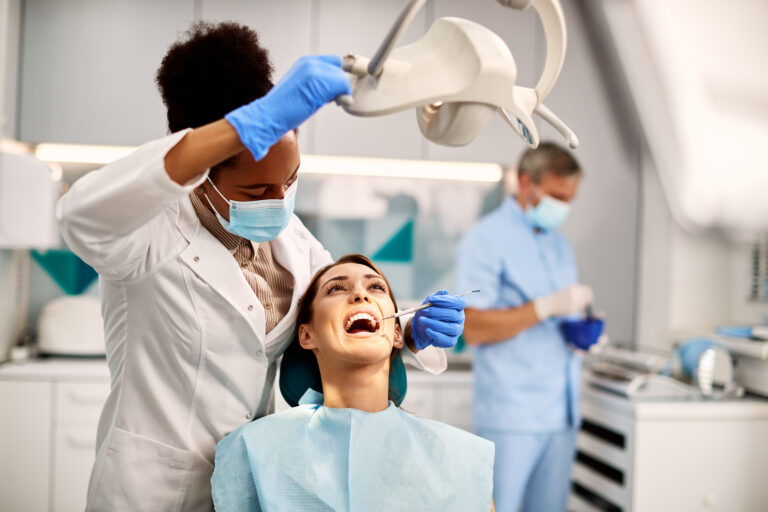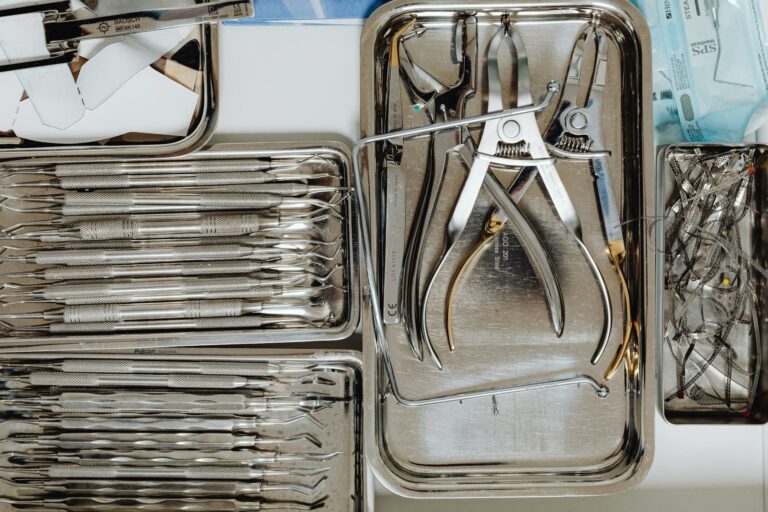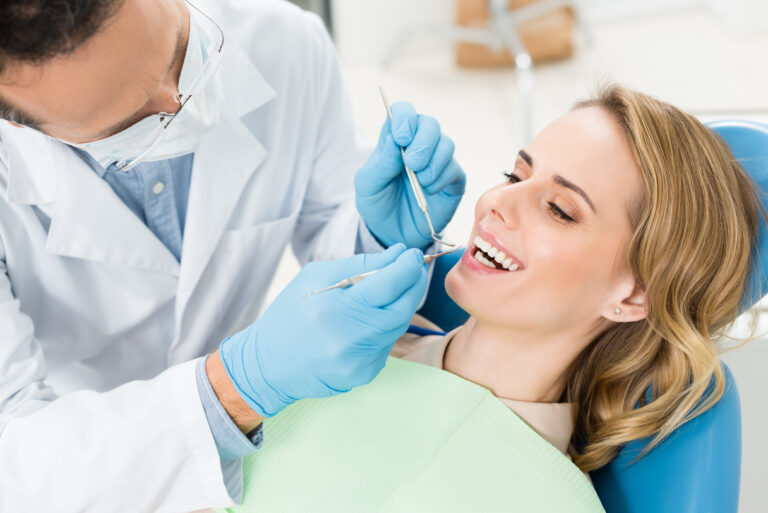Preventive Dental Care in Park Slope: Essential Services to Maintain Oral Health
Preventive dental care in Park Slope is a cornerstone of ideal oral health maintenance. It encompasses regular dental cleanings, fluoride treatments, and dental sealants, which are essential for early detection of cavities and gum disease. Patient education on oral hygiene and nutrition greatly impacts dental outcomes. Emphasizing these preventive measures reduces the need for complex treatments. Understanding the link between oral and overall health is vital. Discover how these elements interconnect to enhance well-being.
The Importance of Preventive Dental Care
Although often underestimated, preventive dental care is a critical component in maintaining oral health and overall well-being. This approach involves the systematic application of prophylactic interventions aimed at health maintenance and the mitigation of oral diseases. The preventive benefits of such care extend to the early detection of conditions like carious lesions, periodontal disease, and oral malignancies. By prioritizing preventive measures, individuals can greatly reduce the incidence of complex dental pathologies, thereby minimizing the necessity for invasive therapeutic procedures. In addition, preventive dental care encompasses the adoption of evidence-based practices such as fluoride application, dental sealants, and personalized oral hygiene strategies. These interventions are instrumental in preserving the structural integrity of the dentition and promoting ideal oral health status throughout the lifespan.
Regular Dental Cleanings and Check-Ups
Routine dental cleanings and check-ups are integral components of preventive dentistry, serving as essential measures to sustain oral health and intercept potential issues at an early stage. These appointments are designed to meticulously remove plaque and calculus deposits that regular brushing cannot eliminate, thereby enhancing dental hygiene. During these visits, oral exams are conducted to assess the overall condition of the teeth, gums, and surrounding tissues. Dentists utilize diagnostic tools, such as radiographs, to identify carious lesions, periodontal disease, and other pathologies that could compromise oral health. The professional evaluation facilitates the early detection of anomalies, allowing for timely intervention and management. Consistent adherence to these preventive protocols greatly reduces the risk of complex dental diseases, ensuring ideal oral health outcomes.
The Role of Fluoride Treatments
Fluoride treatments serve as a pivotal element in the arsenal of preventive dental care, providing a robust defense against dental caries. The fluoride benefits are primarily attributed to its ability to enhance remineralization and inhibit demineralization of tooth enamel. This chemical agent integrates into the enamel matrix, enhancing resistance to acidogenic bacterial attack. Treatment frequency is determined by individual caries risk assessment, with professionals recommending biannual applications for individuals with moderate caries risk and quarterly for those at elevated risk. High-concentration fluoride varnishes or gels are typically employed, ensuring effective delivery and retention. By maintaining an effective fluoride balance in the oral environment, these treatments play a critical role in caries prophylaxis, considerably reducing the incidence of cavities in diverse populations.
Benefits of Dental Sealants
Dental sealants, an effective prophylactic measure, are primarily utilized to shield occlusal surfaces of posterior teeth from cariogenic activity. This intervention involves the application of a resin-based material onto the grooves and fissures of molars and premolars. Sealant application acts as a physical barrier, obstructing the ingress of bacterial agents and fermentable substrates, thereby impeding the demineralization process essential for cavity formation.
The efficacy of dental sealants in cavity prevention is well-documented, with studies indicating a significant reduction in caries incidence among treated surfaces. By providing long-term protection—often lasting several years—sealants are a critical component of thorough preventive dentistry. Their utilization is particularly advantageous in pediatric populations, where elevated susceptibility to occlusal caries is observed, thereby enhancing overall oral health outcomes.
Patient Education and Oral Hygiene Practices
Patient education in Park Slope emphasizes the criticality of proper brushing and flossing techniques, which are fundamental for effective plaque removal and gingival health maintenance. Regular dental check-ups are advocated to facilitate early detection of potential oral pathologies and to conduct professional prophylaxis. Additionally, dietary choices, including the minimization of fermentable carbohydrate consumption, are integral to preventing cariogenic activity and ensuring peak oral health.
Brushing and Flossing Techniques
Effective oral hygiene practices are foundational to maintaining ideal dental health, and a significant component of this regimen involves precise brushing and flossing techniques. The utilization of appropriate toothbrush types, such as soft-bristled or electric toothbrushes, is critical. These tools facilitate optimal plaque removal while minimizing gingival abrasion. A brushing duration of two minutes, with systematic coverage of all quadrants, is advised to guarantee thorough cleaning. Flossing techniques, such as the spool and loop methods, are pivotal in disrupting interproximal biofilm. Daily interdental cleaning with dental floss or alternatives like water flossers enhances periodontal health by mitigating plaque accumulation in areas inaccessible to toothbrush bristles. Mastery of these practices substantially reduces the incidence of caries and periodontal disease.
Importance of Regular Check-Ups
While proficient oral hygiene techniques are instrumental in preventing dental pathologies, the role of regular professional evaluations cannot be overstated. Clinical assessments facilitate the early detection of asymptomatic conditions such as oral cancer and periodontal disease. Regular dental check-ups enable practitioners to identify precancerous lesions and initiate timely interventions, greatly reducing morbidity. In addition, periodontal assessments during these evaluations can diagnose early stages of gum disease, allowing for the implementation of prophylactic treatments to avert progression. Thorough examinations, inclusive of radiographic imaging and professional cleanings, are essential in maintaining ideal oral health. Dentists provide personalized patient education, reinforcing effective oral hygiene practices and mitigating risk factors. Consequently, routine evaluations serve as a cornerstone in the prevention and management of oral health disorders.
Dietary Choices for Teeth
When considering ideal oral health, the impact of dietary choices on dental integrity cannot be overlooked. Consumption of nutrient-rich foods, such as calcium-rich dairy products, leafy greens, and fibrous fruits, is essential in fortifying enamel and promoting periodontal health. These foods supply vital vitamins and minerals that bolster the structural resilience of teeth. Conversely, the frequent intake of fermentable carbohydrates and sugars can lead to acidogenic bacteria proliferation, exacerbating the risk of caries. In this situation, sugar alternatives, including xylitol and stevia, serve as viable substitutes, reducing cariogenic potential while maintaining palatability. Additionally, incorporating a balanced diet with appropriate hydration levels facilitates ideal salivary flow, important for acid neutralization and remineralization processes. As a result, dietary modifications are indispensable in preventive dental care.
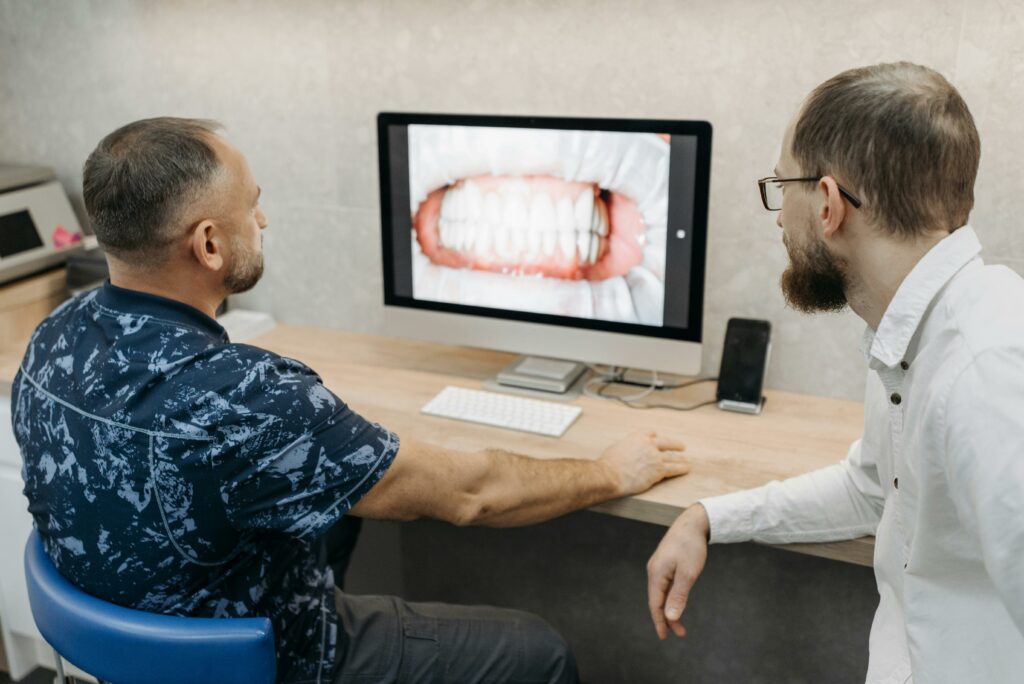
Nutrition and Its Impact on Oral Health
Understanding the intricate relationship between nutrition and oral health is essential for the prevention of dental diseases. Food choices greatly influence oral health, with sugar intake being a primary etiological factor in caries formation. The acidic effects of certain foods and beverages can exacerbate enamel erosion, necessitating careful mineral intake to counteract these processes. Vitamin benefits, particularly vitamins A, C, and D, are critical for maintaining oral mucosa integrity and promoting remineralization. Hydration importance cannot be overstated, as saliva acts as a natural buffer against acid attacks. Snack habits involving frequent consumption of cariogenic foods increase risk, whereas incorporating dairy sources can enhance calcium levels, supporting dental structure. An evidence-based nutritional approach is integral to ideal oral health maintenance.
Early Intervention for Pediatric Dental Care
Nutritional choices set the foundation for lifelong oral health, yet the initiation of preventive practices in early childhood greatly impacts dental outcomes. Early intervention in pediatric dental care is vital in identifying early signs of potential oral pathologies, including caries and malocclusion. Timely assessment facilitates the implementation of tailored prophylactic measures, such as fluoride varnishes and dental sealants, to mitigate disease progression. Addressing pediatric anxiety associated with dental visits is essential, as it can hinder compliance with recommended care protocols. Employing behavior management techniques, including desensitization and positive reinforcement, can alleviate dental apprehension. Multidisciplinary collaboration among dental professionals, pediatricians, and caregivers guarantees an integrated approach, promoting optimal oral health trajectories. Regular evaluations enhance early detection, enabling corrective interventions to maintain sustained dental health.
The Connection Between Oral Health and Overall Well-Being
Although often overlooked, the interrelationship between oral health and overall well-being is profound and multifaceted. The oral systemic connection underlines the pivotal role oral health plays in influencing systemic diseases. Periodontal disease, characterized by chronic inflammation and infection, has been clinically associated with cardiovascular conditions, diabetes mellitus, and adverse pregnancy outcomes. Oral pathogens can enter the bloodstream, exacerbating systemic inflammation, thereby presenting significant health impacts. In addition, poor oral health can lead to nutritional deficiencies due to masticatory inefficiency, affecting overall physical health. The psychosocial dimensions must also be considered; oral health issues can affect self-esteem and mental health, emphasizing the profound interconnectedness between oral and systemic health. Proactive dental care serves as a critical component in maintaining overall health equilibrium.
Choosing the Right Dental Professional in Park Slope
In selecting an appropriate dental professional in Park Slope, how does one navigate the myriad of choices to guarantee the best oral healthcare? A clinical approach involves scrutinizing dental qualifications and evaluating patient reviews. Dental qualifications, such as DDS or DMD degrees, alongside board certifications, indicate advanced proficiency in dental sciences. It is crucial to verify these credentials through relevant professional dental boards. Additionally, patient reviews serve as a qualitative metric, reflecting the practitioner’s patient care standards and interpersonal efficacy. Analyzing reviews across multiple platforms provides a thorough understanding of patient satisfaction levels. This dual approach—assessing credentials and patient testimonials—facilitates informed decisions, making it possible to select a dental professional equipped to deliver superior preventive dental care in Park Slope.
Frequently Asked Questions
What Are the Costs Associated With Preventive Dental Care Services?
The costs associated with preventive dental care services vary based on dental insurance coverage and regional cost comparison. Typically, expenses include professional cleanings, examinations, and diagnostic imaging, influenced by policy terms, deductible requirements, and network provider agreements.
How Can I Find Affordable Dental Care Options in Park Slope?
To identify cost-effective dental care in Park Slope, individuals should explore community resources like local health clinics or sliding scale services. Additionally, inquiring about payment plans at private practices can facilitate affordable access to essential oral healthcare.
Are There Any Dental Clinics in Park Slope That Offer Emergency Services?
Several dental clinics in Park Slope provide emergency dentistry services, catering to urgent care needs. These facilities are equipped with advanced diagnostic tools and skilled professionals adept at addressing dental trauma, severe pain, and acute oral health conditions.
Do Preventive Dental Care Services Include Teeth Whitening Treatments?
Preventive dental care typically focuses on maintaining oral health and preventing disease. Teeth whitening falls under cosmetic dentistry rather than preventive services, as it primarily enhances aesthetic appearance rather than contributing to the prevention of dental issues.
How Often Should I Replace My Toothbrush for Optimal Oral Health?
For ideal oral health and maintaining proper toothbrush hygiene, dental professionals recommend replacing a toothbrush every three to four months. Worn bristles are less effective at removing plaque and bacteria, potentially compromising oral hygiene.
